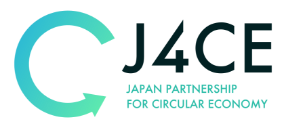Acceleration of recycling waste plastics from small household appliances: Establishing large-scale collection routes and an integrated resource circulation process through advanced sorting technologies
[Company / organization] Mitsubishi Electric Corporation Future Ecology Co., Ltd. BIC CAMERA Inc. Veolia Japan GKdigglue.Inc
Members, their roles, and reason for cooperation
Currently, the recycling of used small electronic devices aims to sort and recover metals with high resource value, such as iron, aluminum, and copper. As a result, the recycling rate of waste plastics from small household appliance is lower compared to the waste plastics recovered from the four items specified by the Household Appliance Recycling Law (refrigerators, air conditioners, washing machines, and televisions). Approximately 80% of these waste plastics are processed through thermal recycling, which reuses the heat generated from combustion as energy.
Since thermal recycling emits a large amount of CO2, there is an expectation to improve the recycling rate from a decarbonization perspective. For plastics in small electronic devices, which lag behind metals in terms of recycling, we are working to establish a system that significantly advances the sustainable use of plastics through a combination of technologies that promote resource circulation. This effort aims to achieve the gradual implementation of these solutions in society.
Time started (or to be started)
As a project to realize concrete collaboration between arterial and venous companies, we were selected for the Tokyo Metropolitan Government's "FY 2023 Innovative Technology and Business Model Promotion Project" and began the research and analysis phase in July 2023.
Technology and business model
Targeting rice cookers, which contain a relatively high amount of plastic among small household appliance, we conducted a trial of the entire process from collection to recycling and examined the intermediate processing steps necessary for the horizontal utilization of plastics. The main challenges identified were improving the efficiency of the disassembly process to extract only plastics from small electronic devices composed of various materials and components, and enhancing the productivity of advanced sorting machines for recycled plastics.
Achievements and goals
To address the challenges identified during the research and analysis phase, we are establishing a collaborative framework with equipment manufacturers for mechanical disassembly and end-user companies (manufacturers of final products that purchase and use recycled plastics). We plan to conduct a demonstration phase to resolve these challenges by the end of fiscal year 2025. Our long-term goal is to expand the system established through this project to certified small electronic device businesses nationwide.
- Recycle
- Design
- Production
- Distribution
- End-of-use
- Information platform
- Plastics
- Company in same business category
- Company in different category.
- National government/ public institute
- Local government
- Initiatives for the future


